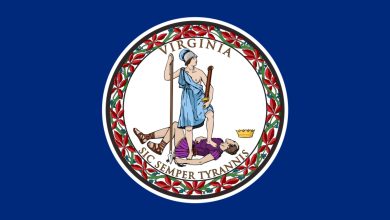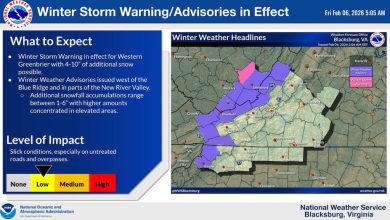Roanoke-based organization works to address opioid crisis
Roanoke, Virginia – As the ramifications of the ongoing opioid crisis continue to reverberate throughout the nation, efforts to mitigate its damaging impact are gaining momentum in the state of Virginia.
The Virginia Harm Reduction Coalition, headquartered in Roanoke, has been meticulously offering its services to the residents of Northern Virginia by equipping them with critical knowledge and skills to deploy Narcan, a life-saving drug known to interrupt and potentially reverse an opioid overdose.
According to statistics presented by the Commonwealth Fund, there has been a slight decrease in opioid-induced fatalities from 2021 to 2022. Despite this marginal decline, the death toll remains ominously high when compared to figures prior to the onset of the COVID-19 pandemic.
Danny Clawson, the executive director of the Virginia Harm Reduction Coalition, highlighted the emergence of novel substances, such as xylazine, as a significant hurdle in their collective endeavors to quell the opioid crisis.
“The challenge posed by xylazine lies in its unresponsiveness to the overdose reversal drug Narcan, as it is not classified as an opioid,” Clawson clarified. “In contrast, drugs such as fentanyl and carfentanil, frequently mentioned in these discussions, are indeed opioids, and hence, Narcan successfully intervenes by acting on the opioid receptor.”
While the coalition continues to formulate a response protocol for xylazine overdoses, their immediate advice to volunteers is to ascertain that the affected individuals receive sufficient oxygen. In April, the White House’s Office of National Drug Control Policy classified the mixture of fentanyl with xylazine as a newly emerging threat in the United States.
Beyond the immediate issue of drug misuse, Clawson emphasized other obstacles that the population her organization aids are confronted with. Among the most pressing issues are the dearth of accessible housing options and the prevalent shortfall in mental health care services.
“The vast majority of our participants who resort to the use of illicit substances are essentially self-medicating,” Clawson pointed out. “They grapple with intricate mental health issues, and the difficulty in securing stable, affordable mental health care means we struggle to direct them towards the necessary services.”
In her view, the provision of support for these individuals to access suitable medication, under the supervision of a healthcare professional, is markedly insufficient.
Virginia’s Governor Glenn Youngkin has proposed a mental health plan designed to pioneer mobile treatment and crisis response services. Additional funding is anticipated to dismantle obstacles standing in the way of recovery and reintegration for individuals affected by fentanyl overdoses.




